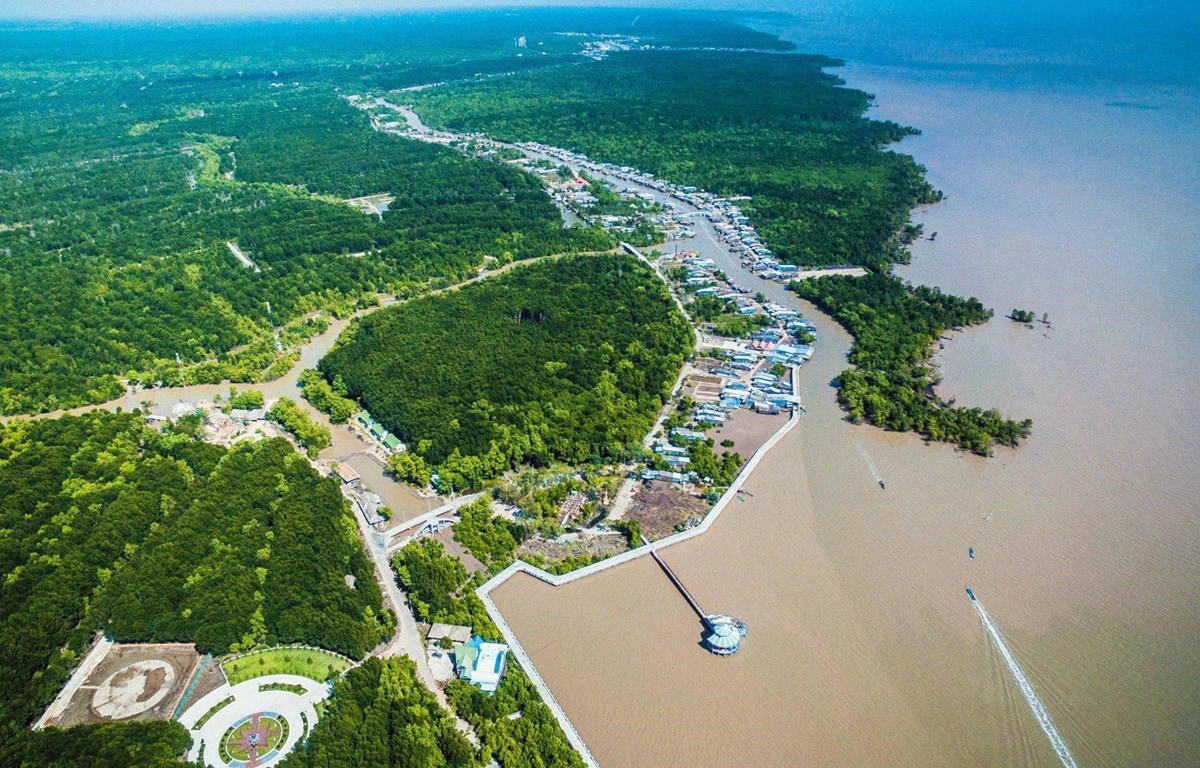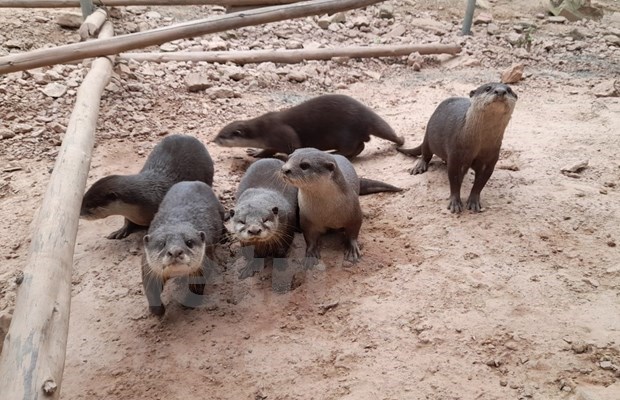Biodiversity – foundation to build a better future

Hanoi (VNA) - Along with legal tools, it is time to consider biodiversity protection as a moral issue so as to secure a better future for younger generations, stated the Minister of Natural Resources and Environment Tran Hong Ha.
Although Vietnam has a high level of biodiversity, it is necessary for the nation to set a solid foundation for future life amidst an increase in the number of animals going extinct in the past years, Ha said.
“Nature house” is being threatened
The Ministry of Natural Resources and Environment (MonRE) said Vietnam is among 12 biodiversity centres in the world, and is one of the world’s 16 most biologically diverse countries with some 51,400 species including 20,000 plants, some 10,900 terrestrial animals, 2,000 invertebrates and freshwater fish, and over 11,000 marine species.
Vietnam is an important destination for migratory birds since it lies on one of nine important flight routes of migratory birds with more than 300 species. Wild birds have created significant natural values while contributing to preserving biodiversity and developing tourism.
However, like many other countries, Vietnam is experiencing increasing biodiversity degradation. Despite efforts to address biodiversity loss through policies, national strategies and various projects, it remains a major challenge that requires the whole-of-society efforts.
The study shows that 21 percent of mammals, 6.5 percent of birds, 19 percent of reptiles, 24 percent of amphibians, 38 percent of fish, and 2.5 percent of plants are listed as threatened species. Over the past 20 years, forest areas have been the most affected with more than 10,544 square kilometers lost to agriculture. Around 2.8 million hectares of natural forest have also been lost due to land conversion to other commercial crops.
There are numerous causes, direct and indirect, for biodiversity loss in Vietnam, such as overexploitation of natural resources, illegal logging, illegal wildlife trade, infrastructure development, intensive farming expansion, along with other economic production activities catering for ever-growing human needs.
Hoang Thi Thanh Nhan, Deputy head of the Vietnam Environment Administration’s Biodiversity Conservation Agency, said ecological meltdown in Vietnam has been spurred by high level of legal violations and a lack of interest in preservation work from competent authorities and the society.
 Otters at Wildlife Rescue Centre (Photo: VietnamPlus)
Otters at Wildlife Rescue Centre (Photo: VietnamPlus)
Building future for nature
Strategic actions should be sketched out to preserve the nation’s biodiversity and carry out international commitments to protecting the environment, according to MoNRE.
The 2020 Law on Environmental Protection, which took effect at the beginning of 2022, has timely institutionalized many new policies of the Party and State related to environmental protection.
The law is also gradually harmonised with international laws with amendments related to environmental quality management towards protecting people's health.
For the first time, the law defines a residential community as a subject of environmental protection, which promotes the role of residential communities in environmental protection activities.
It also comprises new regulations on strict control over projects with high risk of adverse environmental impacts; post-inspection for projects using advanced and environmentally friendly technologies; and cuts many administrative procedures.
The MoNRE has asked ministries, sectors and organisations to raise public awareness of effective use of natural resources, sustainable and responsible consumption, and the negative impacts of wildlife products.
Ministries and localities must outline rational action programmes to bolster the circular economy and preserve native plants and animals as recommended by the UN’s Convention on Biological Diversity.
They are urged to work together to develop a biodiversity information system, enhance application of information technology to connect localities and nature heritage sites, and integrate biodiversity preservation into economic development strategies and plans./.
Box: Deputy Prime Minister Le Van Thanh has recently signed a directive to protect migratory and wild birds in Vietnam.
Under the directive, the MoNRE was tasked to submit regulations on the preservation of wild and migratory wild birds in Vietnam. Guidelines on the management and protection of wild animals and migratory birds, including the protection of habitats, trans-boundary migration routes, and their stopover sites, will be put in place.
The MoNRE was assigned to work with other relevant countries and territories to protect wild animals and migratory species, and set up a system to monitor important flight paths of migratory birds.
The Ministry of Agriculture and Rural Development was assigned to work with forest rangers and local authorities to patrol, control, prevent and punish illegal hunting and capture of migratory birds.
It was urged to coordinate with relevant agencies to complete legal provisions on sanctions for illegal actions./.













